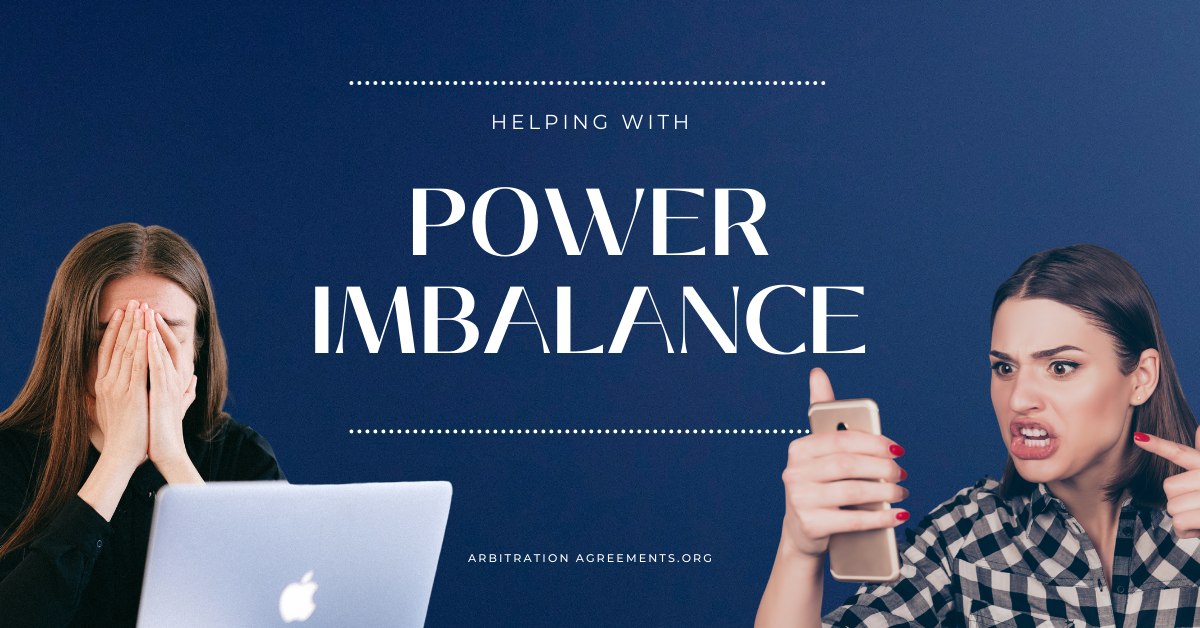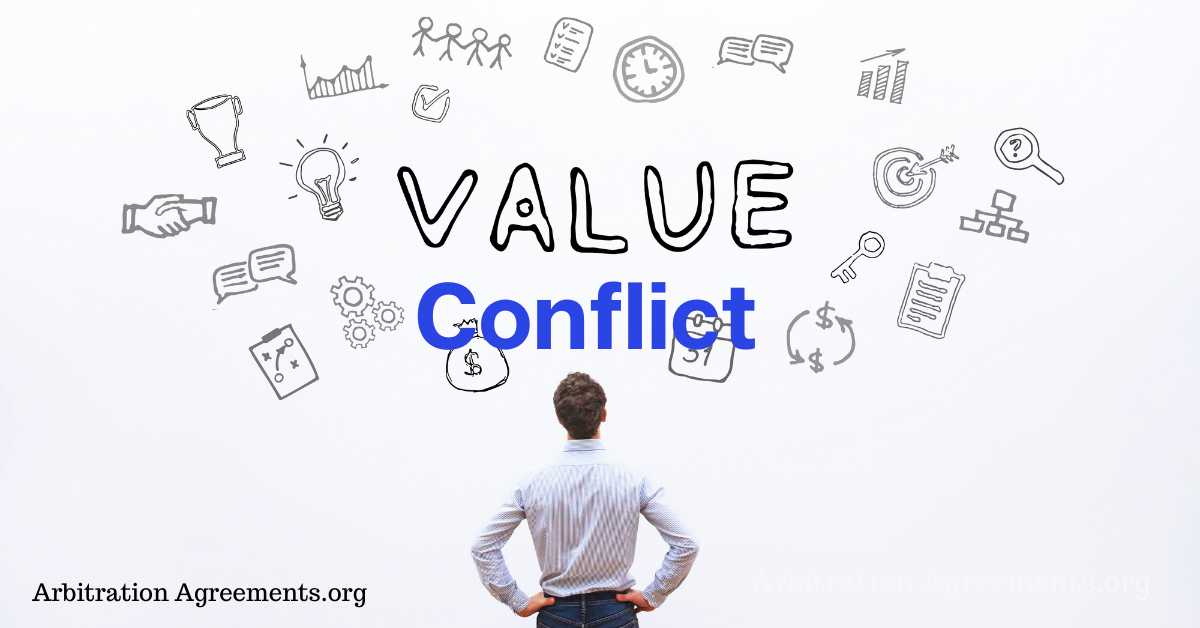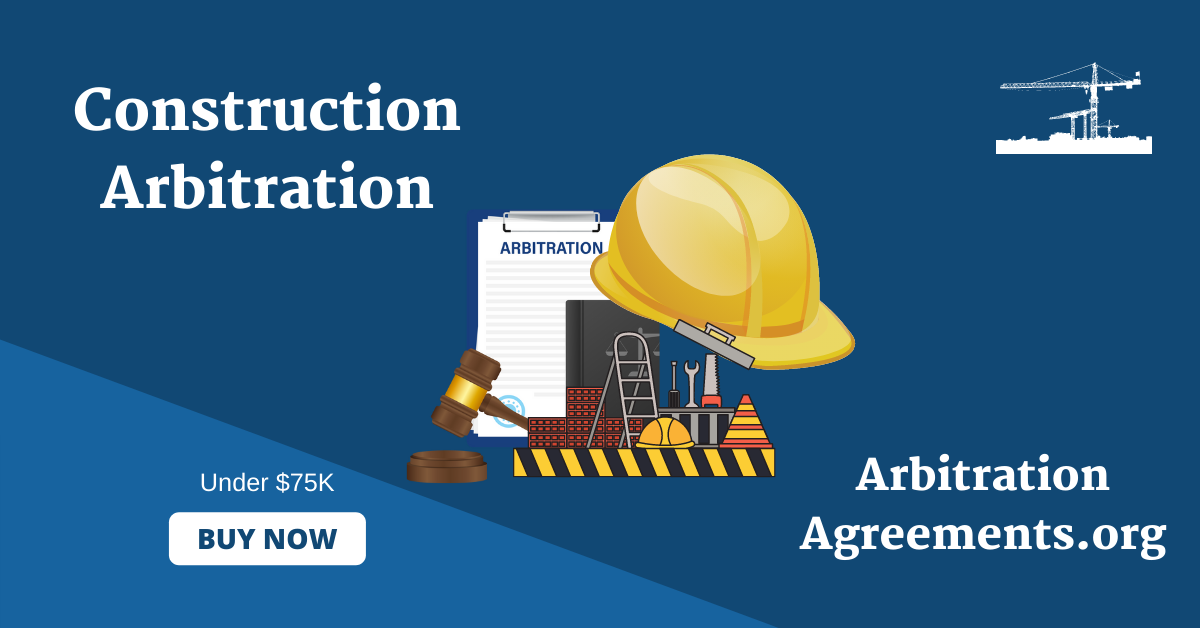Binding Arbitration Definition: Understanding Arbitration & Binding Arbitration
There’s no need to open a dictionary- here is a binding arbitration definition. A binding arbitration agreement means that parties in a dispute waive the right to go to trial. Instead, they take part in the arbitration process. Once the process concludes, the parties accept an arbitrator’s decision as final. Parties in an arbitration dispute can almost never appeal an arbitration decision. Thus, the arbitration decision and award have “binding” status. In today's educational marketplace, students are increasingly looking to understand the goal of binding arbitrations. A contractual agreement to settle disputes out of court using a neutral third party. In the absence of any contrary agreement between the parties, the arbitral tribunal is authorized to designate one or more experts to furnish a report on specific matters as determined by the tribunal. Furthermore, the tribunal may compel a party to furnish the expert with any pertinent information or to produce, grant access to, or make available any relevant documents, goods, or other assets.
The Arbitration Agreement Association specializes in all forms of arbitration. One of our main goals is to help bring awareness about arbitration to the public. Let’s go ahead and jump into a more specific definition of binding arbitration. In just a few minutes, this brief article will explain how binding arbitration works and why some educational institutions choose to waive their participation in the traditional court system, instead opting to join the class of institutions that have embraced arbitration as a more efficient way to collect and resolve disputes. A process in which a neutral third party called an arbitrator is used to resolve. Binding arbitration is a widely used alternative to the court system in the market. It takes only minutes to join the class, making it accessible for students and educational professionals.
What Is the Definition of Binding Arbitration? How to differ from mandatory binding arbitration
The next sections contain full-scale binding arbitration definitions. Here is something to keep in mind. “Binding arbitration” and “arbitration” refer to the exact same concepts. You can interchange these terms. Why? Because all interest arbitration has binding status. The only exception is non-binding arbitration. So, when you hear “arbitration,” it’s a synonym for “non-binding arbitration.” By waiving the lengthy court proceedings, they mark a significant shift in the way disputes are resolved within the educational realm, streamlining the process and leaving court briefs behind. On the contrary, according to arbitration industry experts, the business of the forum primarily encompasses corporate-consumer disputes, largely attributed to the company's assertive marketing strategies. The goal is to understand how to work within this efficient system, collecting briefs and waiving away the traditional court process. In the educational marketplace, this understanding marks a significant step towards a more streamlined and cost-effective resolution of disputes. Must visit at Civil Arbitration.
Binding arbitration is a private method in which disputing parties resolve a disagreement.
They agree that at least one person can make a ruling about a dispute. The person(s) serves as the arbitrator. Arbitrators review the evidence and listen to arguments. (While adhering to every legal privacy term.) Mediation is not the same as arbitration. Why? Because mediators cannot make enforced decisions about disputes, forced arbitration. In binding arbitration, arbitrators can. Within the educational landscape, leaders and teachers often seek guidance from experts in the field of arbitration. Furthermore, the utilization of arbitration allows companies to collaborate with impartial third-party professionals who possess expertise in the field of arbitration.
The Binding Arbitration Process
Think of the arbitration process as that of a court trial. Both parties begin by making opening statements. Next, the parties provide evidence that the arbitrator can assess. An arbitrator’s time focuses on analyzing the legally binding status of evidence. Arbitration disputes almost always go faster than standard court trials. It also isn’t as formal for the parties. Most parties do not have to adhere to federal rules of evidence. This creates a relaxed, casual atmosphere that you won’t find in most courtrooms. This resource-rich article not only provides a comprehensive history of arbitration but also delves into the nuances of contractual agreements. The National Women's Law Center, Families, and the Leadership Conference on Civil Rights constitute the most extensive and varied coalition of organizations dedicated to safeguarding civil and human rights in the United States. It is the oldest of its kind in the nation.
Binding Arbitration Awards
Once an arbitration hearing ends, an arbitrator provides the award to one of the parties. Think of an arbitration award as the judge’s ruling in a court case. Through arbitration, an arbitral award can almost never get appealed by parties. There are very narrow grounds when it comes to appealing arbitration awards. Arbitration awards will be enforced by a court on an immediate basis. Through non-binding arbitration, an award can also be enforced. But only if the award gets accepted by both parties. Renowned experts in the field of negotiation have discovered unconventional methods for managing conflicts that have the potential to transform adversaries into collaborative partners.
Mandatory Arbitration
Some contracts feature a provision for mandatory binding arbitration. This arbitration provision enforces that parties address contract disputes through arbitration. It prevents parties from resolving a dispute in the US court system. A mandatory binding arbitration clause sometimes enforces that parties waive certain rights. So, what is the most common waived right by parties? It is the option for appealing an arbitration decision. A wide-ranging alliance of civil rights organizations, along with the Department of Justice, endorse this bill. Therefore, I kindly request that copies of the letters expressing support for the bill from the Leadership Conference on Civil Rights and the Department of Justice be included in the official record of this hearing.
Can You Sue After an Arbitrator (or Tribunal) Makes a Defined Decision? What is binding arbitration?
What Should Go Inside an Arbitration Clause?
Binding arbitration lives up to its name. “Binding” refers to an arbitration award having legally binding status. An arbitrator provides the binding award. An arbitrator provides each binding award after analyzing evidence. Parties cannot sue once a binding award gets issued. In fact, parties cannot even appeal an arbitrator’s binding decision. (Unless a large-scale misapplication of the law has taken place by the arbitrator.) Educational departments, much like banks, often opt out of non-binding arbitration, instead embracing mandatory binding arbitration as an efficient method for conflict resolution. Explore the FAQ menu and the table of contents for insights into this organizational practice, which has gained prominence under the Department of Labor and the Consumer Financial Protection Bureau. Also, visit at ADR times Binding Arbitration.
Who Pays for Binding Arbitration?
Contact us to learn about Sample Arbitration. In most arbitration cases with bound status, parties split the costs in a 50/50 manner. Of course, if a party hires a lawyer, that party must pay attorney fees. In some cases, a collective bargaining agreement might state how payments function. Some binding contracts contain Mandatory Arbitration Provisions. This is where the loser has to pay the cost of arbitration with binding status. That’s why it’s best for parties to review contracts word-for-word. It’s not the role of an arbitrator to review a binding arbitration contract. Instead, an arbitrator reviews the evidence related to the binding contract. Do you need help reviewing a legal, binding contract or Pre Dispute Arbitration Clause? If so, please contact our arbitration dispute team today.

Is Binding Arbitration Enforceable?
Yes, both the US state and federal government always enforce arbitration. This has been the case since 1925. That was when the Federal Arbitration Act (FAA) went into effect. This law (and policy) protects all arbitration agreements and provides them with validity. You will observe that our arbitration specialists demonstrate exceptional diligence in their adherence to legal principles. These frequently asked questions (FAQs) offer fundamental information regarding arbitration and the potential impact of arbitration decisions, in which the Office of Federal Contract Compliance Programs (OFCCP) was not involved, on OFCCP's enforcement actions.
Do you need an in-depth history of the arbitration dispute process or policy?
If so, let our arbitration experts know which policy you’re interested in. We can send you information about all sorts of legal milestones. (Such as the Taft Arbitration Treaties.) This way, you can learn about the legal history of all sorts of arbitration disputes. Do you know about the Mandatory Arbitration Clause? An individual shall not be eligible to act as an arbitrator unless they have successfully fulfilled a minimum requirement of three credits of continuing legal education, as approved by the Washington State Bar Association, specifically focusing on the professional and ethical aspects associated with serving in the capacity of an arbitrator. The Consumer Financial Protection Bureau has undertaken a study on the extensive utilization of mandatory arbitration in consumer financial contracts and has put forth a regulation that restricts the use of class action waivers in such agreements.
What Is the Difference Between Mediation and Binding Arbitration in Law?
Arbitration vs. Mediation in detail. What are the advantages of arbitration? Think of the mediation process in law as a negotiation without binding status. A neutral third party helps the disputing parties find a resolution. The resolution cannot be enforced unless all parties stand in agreement. (That’s why it is never binding.) The arbitration resolution legal process is very different when it comes to the law. Why? Because it’s like a court trial. (But with more of a relaxed, casual atmosphere.) The arbitrator will assess the evidence and provide a final decision/award. That decision then gets enforced under US law on an automatic basis. Arbitration vs Mediation vs Litigation. How can businesses and creditors be prevented from intimidating consumers through expensive and time-consuming legal actions?
Can an Arbitration Award Get Challenged?
No, by law, arbitration awards cannot be challenged after the resolution. (Unless a very rare circumstance takes place.) A party must prove a lack of jurisdiction or procedural irregularities to challenge. Or, a party must prove a lack of public policy or arbitration ability. The lack of challenging a law decision or resolution differs from US court cases. You can appeal court judgments for legal or factual review. But until it gets overturned, you've got to keep complying. Get a better understanding of the Arbitral Tribunal. The Supreme Court in Gilmer declared that it is now evident that statutory claims can be encompassed within an arbitration agreement. This pertains to both statutory and contractual agreements established between employees and employers.
Why Do Employers Prefer Arbitration?
Employers (and many other people and groups) prefer arbitration with binding status. One key reason is that the process goes faster than US court trials do. Plus, arbitration costs are almost always cheaper than court costs. Through arbitration, an award or resolution can be issued in weeks or months. (As opposed to years when it comes to many state and federal court cases.) The aforementioned entities, namely the Department of Labor, Securities Exchange Commissions, the National Mediation Board, the Occupational Safety and Health Administration, the Surface Transportation Board, Office of Federal Contract Compliance Programs, and criminal law enforcement authorities, shall not be impeded from conducting investigations pertaining to any report, claim, or charge that would otherwise fall under the purview of this agreement. A fast legal resolution can save every business a lot of money. The enforceability of the arbitrator's decision is contingent upon the parties' adherence to the terms of binding or non-binding arbitration, as mutually agreed upon.
Is Arbitration (and the Average Arbitral Tribunal) Fair?
Many people do consider arbitration (even with mandatory status) fair. Involves the submission of a dispute to a neutral party who hears the case and makes an Arbitration. That’s because all parties must agree on who serves as arbitrators. This way, both sides develop confidence that the arbitrator is fair and impartial. Plus, it is often easier to present evidence in arbitration than in US court cases.
Need a Lesson About More Arbitration Terms? Let Us Know
How many types of arbitration do you know? Sure, we’ve defined many arbitration meanings and law terms on this page. But you are welcome to contact us about any arbitration-related definitions. (Or about mediation or another legal concept.)
Our experts know arbitration terms better than any other organization.
You can call us, message us, or email us a list of terms. We can even supply you with law study information about arbitration cases. This way, you can post your legal knowledge about disputes quickly. Form of dispute resolution in which the involved parties submit their arguments and evidence. Our team can also supply you with business terms that correlate to arbitration. We’re the number one resource for arbitration law in the United States. And we’re ready to prove why through our first-rate legal information.
We Can Provide the Arbitration Resources That You Need
How ADR Arbitration process? No matter the legal dispute in your business or workplace, we can assist. Sure, we’re not arbitrators. But we have access to the best arbitration resources in the country. Of resolving a dispute outside of a courtroom in which the decision is binding upon the disputing. An arbitrator’s role is only to enforce a legal decision. Our role is to provide parties with arbitration solutions that resolve legal disputes. But arbitration is not our only strong suit.
We provide mediation solutions to business after business. And, of course, to all individuals in a legal dispute.
Please check the business reviews made by our past customers. The arbitrators will make a determination of the rights of the parties to the dispute. You’ll see that our arbitration experts go the extra mile with the law. Their world-class behavior helps parties find arbitration solutions. Plus, we provide complete privacy when discussing big or small issues. As we do with our policy for website cookies, we apply privacy to every legal dispute. You agree to resolve any disputes about the contract beforehand. After all, arbitration itself is all about adhering to rules for privacy. That’s why we make our own strict series of privacy rules.
Combining arbitration with Conciliation.
Our experts are here for you even if you need help concerning arbitration without binding status. We’ll direct you to the right binding or non-binding dispute resources. (Or, without mandatory status.) From assessing an arbitrator’s legal history to communicating on behalf of parties. We won’t rest until all parties can resolve their legal disputes with ease. This applies to legal arbitration and mediation across all fifty states.
Binding arbitration is a process defined by a dictionary definition as a binding procedure, meaning parties involved are bound by the decisions reached through this method. To define binding arbitration concisely, it's a formal, legally recognized procedure for resolving disputes where parties agree to abide by the arbitrator's ruling, ultimately ensuring a final and binding resolution.
When it comes to disputes, no one knows the law better than our organization.
Other organizations like JAMS and CH only seem to have limited arbitration resources. But our legal experts can do it all. We can even supply you with legal information about international arbitration. Sure, workplace and business arbitration are some of our main specialties. But we know about the claims process for all aspects of arbitration. If your goal is securing a legal arbitration award, then that’s our goal too. And our arbitration experts won’t rest until your dispute gets resolved.
When it Comes to Organizational Arbitration Help, We’re #1
Do you or your business need arbitration vs litigation help? If so, please contact us right now. Our team is ready to get to work and help resolve your legal dispute. We assist you with any arbitration process. From finding an arbitration tribunal to assisting with mediation disputes.
Whether your arbitration is mandatory or not, our team is 110 percent prepared.
We encourage representatives of any parties to call us right now. Within minutes, our team can assess your legal dispute. Then, we can find new strategies to help you receive the award that you deserve. Our arbitration experts look forward to helping you succeed.









